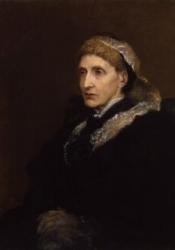The Contagious Diseases Acts were repealed
In 1886, the Contagious Diseases Acts were repealed which was a big relief for many British women. These were acts that would give the authority the power to take women, initially from areas near army bases, that were suspected of being prostitutes and get them checked for sexually transmitted diseases. Eventually, if they had tested positive, would be locked up in a hospital explained with, “If they were, they were then required to enter a lock hospital for treatment and to stay there until cured or for up to a maximum of nine months” (Cox 95). There were efforts to try and stop these horrible acts shown with, “In Britain, the CD Acts were suspended in 1883 and repealed in 1886, although they remained in force in many parts of the empire” (Cox 95). The acts were finally brought to an end first being suspended, making way for them to be repealed officially in 1886.
The Contagious Diseases Acts were upsetting laws that had reflected the ideas held about the differences between men and women at the time. This is a major reason as to why these acts came to be in the first place. That very reason is highlighted with the explanation of the difference with, “There is no comparison to be made between prostitutes and the men who consort with them. With the one the offence is committed as a matter of gain; with the other it is the irregular indulgence of a natural impulse” (Hall 39). There was the argument that for one, the response was natural, and for the other, it was only out of gain. Having that natural impulse to sexual matters only made sense at the time to be made by a male and was never even considered for a woman. A leading figure named Josephine Butler argued this in the fight against the Contagious Diseases Acts. Butler was able to articulate her argument with, “the false and misleading idea that the essence of right and wrong is in some way dependent on sex. We never hear it carelessly or complacently asserted of a young woman that ‘she is only sowing her wild oats’” (Hall 43). This massive disconnect between male and female was the main issue that needed to be resolved for the acts to be abolished.
Exploring the fight Josephine Butler put up against the acts would further show the issues with this push for change. Butler was a married woman and her husband, George had been in support of the reform she was trying to bring forth. He decided to take a very different role at the time which is explained with, “He was even willing to let his wife become the leader and public face of the repeal movement, while he performed a quieter role” (Swan 7). Due to her husband supporting her in her efforts, he was not able to even get a promotion at his job with the church. George was able to be a very critical part of the process since at the time there were many expectations put on Victorian women especially the married women. This is even emphasized with, “George Butlers unequivocal support for Josephine was one of the primary factors in her success, and its importance cannot be overstated. ‘She could trust him utterly to sympathize with and support her,’ for George firmly believed that justice would eventually prevail” (Swan 8). The expected dynamic of a husband and wife of the time were no longer in place for them since a lot had to be sacrificed to fight the injustices of the Contagious Diseases Acts.
After getting repealed there was still a major issue with sexually transmitted diseases due to a lot of the blame simply being put onto women. When describing the reaction to the acts being repealed, it was vocalized with, “The repeal of the CD Acts was a blow to the colonial regulation of prostitution, but a far from fatal one. The British military and the imperial government continued to be preoccupied with the problem of venereal diseases” (Howell 445). There was still a massive problem in 1886 after the acts were repealed fully with having these diseases still being spread. Even after being repealed, there were still some territories that felt that these procedures were necessary in order to regulate and stop prostitution. This can be seen with the overseas territory of Gibraltar when the governor explains, “They come to ply their calling here with the knowledge that they are to submit to the examination and as they do so voluntarily I cannot see any hardship in it. It is simply a contract they enter into. If they do not wish to enter into the contract they need not come” (Howell 449). This was in 1887 which would have been a year after the acts were repealed, showing that not everyone was content with the outcome. Overall, this was a great and major victory for feminism and women going forward.
Work Cited
Cox, Pamela. “Compulsion, Voluntarism, and Venereal Disease: Governing Sexual Health in England after the Contagious Diseases Acts.” Journal of British Studies, vol. 46, no. 1, 2007, pp. 91–115., doi:10.1086/508400.
Hall, Lesley. “Hauling Down the Double Standard: Feminism, Social Purity and Sexual Science in Late Nineteenth-Century Britain.” Gender History, vol. 16, no. 1, 2004, pp. 36–56., doi:10.1111/j.0953-5233.2004.325_1.x.
Howell, Philip. “Sexuality, Sovereignty and Space: Law, Government and the Geography of Prostitution in Colonial Gibraltar.” Social History, vol. 29, no. 4, 2004, pp. 444–464., doi:10.1080/0307102042000298949.
Swan, Asa James. “ A Life of Study, Prayer, and Action: the Feminist Christianity of Josephine Butler.” Priscilla Papers, vol. 30, no. 4, 2016, pp. 5–15., doi:10.1107/s0108768107031758/bs5044sup1.cif.

